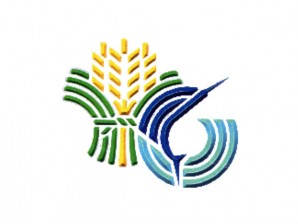BFAR enforces ban on mackerel, sardines fishing in Visayan seas

The implementation of the ban, which would start Thursday (November 15) and end in March 2013, would increase the production of mackerel and sardines in the Visayas by 20 percent, said BFAR national director Asis Perez.
The fishing ban covers the Visayan seas, which straddle the Bicol as well as the Western, Central and Eastern Visayas regions.
Specifically the coverage of the prohibition on sardine and mackerel fishing will start from the mouth of the Danao River on the northeastern tip of the Bantayan Island to Madridejos, through the light house on the Gigantes Island to Clutaya Island, to Culasi Point in Capiz Province, coastward along the northern coast of Capiz to Bulacaue Point in Carles, Iloilo, southward along the eastern coast of Iloilo to the mouth of Talisay River, westward across Guimaras Strait to Tomonton Point in Occidental Negros, eastward along the northern coast of the Island of Negros and back to the mouth of Danao River in Escalante, Negros Occidental.
On Wednesday, Perez personally supervised the dispatch from Bantayan Island of three monitoring, control and surveillance (MCS) vessels and a speedboat that would ensure the enforcement of the ban.
Perez told the Philippine Daily Inquirer in a phone interview that he was anticipating few violators of the prohibition with most commercial fishing operators expressing full support for the implementation of the closed season for mackerel and sardines in the Visayan seas.
Article continues after this advertisementHe said that the Northern Cebu Fishing Boat Operators and Fisherfolks Association as well as the Bisayas Alliance of Fisherfolks and Operators for Reform, two of the biggest fishing organizations in the Visayas, have assured the BFAR that they would abide by the government restriction.
Article continues after this advertisementThe BFAR director said the MCS vessels would not only be waiting to intercept fishermen violating the ban but would be anticipating possible attempts to undermine the restriction.
The Visayan seas and the Autonomous Region in Muslim Mindanao contribute 30 to 35 percent of the total sardine production in the country, according to the BFAR. The mackerel and sardines are used in the canning industry and are sometimes sold in markets often as dried fish.
Perez explained that the bureau aims to surpass the 13 percent increase of sardine production in the waters of Zamboanga, which accounts for 40 to 45 percent of the country’s total catch.
The previous fishing ban enforced in the Zamboanga Peninsula, covering the East Sulu Sea, Basilan Strait and Sibuguey Bay from December 1 last year to February 28 this year, resulted in the increase of sardine production from 63,351 metric tons in the second quarter of 2011 to 72,446 metric tons in the same quarter of this year according to the Bureau of Agriculture Statistics.
BFAR expanded the restriction coverage to the Visayan seas based on studies that the three major species of sardines such as fimbriated sardines (tunsoy), Indian sardines (tamban) and round herring (tulis) in the waters of Zamboanga and the Visayan Seas belong to a single stock which meant that the fish breed and spawn at the same time.
The BFAR director said that the Visayan seas have been generating 80,000 metric tons of sardines and mackerel annually and a hiked production of 20 percent would already be a considerable increase of fish stock.